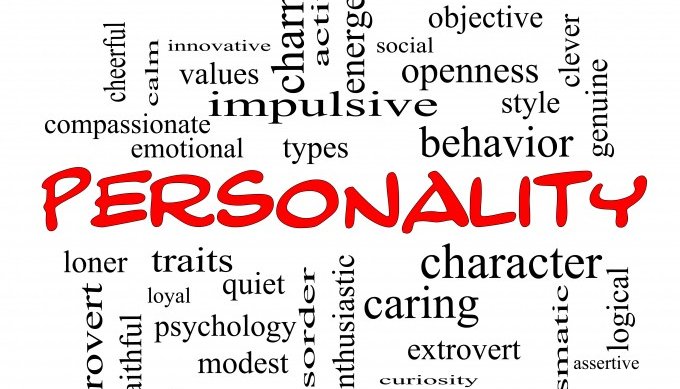An assessment of ones personality creates the ability to bring together the unique variety of traits one person carries and use them to describe several broad traits that can relate to everybody. My mind explodes when thinking about the thousands of traits used to describe the personality of a human being, yet we have found ways to filter those thousands of traits down into several broad traits. In order to assess someones personality, we have to understand their traits are unique in their own form or fashion. Those several broad traits I was describing indicate these differences in people's personality by setting these basic trait dimensions that may change over time and in different scenarios. The Five-Factor model is one of the most widely used systems that attempt to identify a person's personality. This system includes five broad traits and uses the acronym OCEAN: Openness, Conscientiousness, Extraversion, Agreeableness, and Neuroticism. Each of these terms implements a variety of unique traits each person may carry and that helps identify the percentage of each broad term a certain person carries. These traits aid in guidance towards identifying ones personality. With that saying there are others who may seek other traits in which they feel the Five-Factor model cannot grasp. Three huge names that helped pioneer this idea a trait approach to personality are: Gordon Allport, Raymond Cattell, and Hans Eysenck. They wanted to give people a self-report measure while creating statistical evidence based off the respondents traits when answering some questions. In fact, I choose to take Eysenck's personality test.

Eysenck's Personality Test:
Eysenck's personality test has determined with statistical evidence that personality is composed of three main elements: Extroversion, Neuroticism, and Psychoticism. As we see, the first two come from the Five-Factor model so that gives a pretty big hint that these are two significant broad traits in defining someone's personality. Now I was a little questionable on the third's importance but I understand it must have some sort of significance in identifying one's personality. Psychoticism differs from the first two in that it implies more negative qualities in a person. The test is guided through a series of questions that contains five answer choices varying from very inaccurate to very accurate. With the answers given by the applicant, the test provides statistical results of the percentage it believes the person to have in each category.
Eysenck Test Results:
Extroversion (sociability) |||||||||||| 50%
Neuroticism (emotionality) |||||||||| 36%
Psychoticism (rebelliousness) |||||||||| 40%
Extroversion results were medium which suggests you are moderately talkative, outgoing, sociable and interacting.
Neuroticism results were moderately low which suggests you are relaxed, calm, secure, and optimistic.
Psychoticism results were moderately low which suggests you are, at times, overly kind natured, trusting, and helpful at the expense of your own individual development (martyr complex).

Reflection Over The Results:
I agreed with the results of neuroticism and psychoticism, but not extroversion. I like how in neuroticism described me being relaxed, calm, secure, and optimistic because I feel I portray these traits on a day to day basis. That goes for the psychoticism traits as well: kind natured, trusting, and helpful at the cost of my own individual development. As for extroversion, I personally feel I lean more towards the shy side rather than being outgoing, talkative, and very sociable. Though I do enjoy social interaction at times, I portray more of the introvert character on a day to day basis. Other than that, I was very impressed on how accurate this personality test is.
Neuroticism (emotionality) |||||||||| 36%
Psychoticism (rebelliousness) |||||||||| 40%
Extroversion results were medium which suggests you are moderately talkative, outgoing, sociable and interacting.
Neuroticism results were moderately low which suggests you are relaxed, calm, secure, and optimistic.
Psychoticism results were moderately low which suggests you are, at times, overly kind natured, trusting, and helpful at the expense of your own individual development (martyr complex).
Reflection Over The Results:
I agreed with the results of neuroticism and psychoticism, but not extroversion. I like how in neuroticism described me being relaxed, calm, secure, and optimistic because I feel I portray these traits on a day to day basis. That goes for the psychoticism traits as well: kind natured, trusting, and helpful at the cost of my own individual development. As for extroversion, I personally feel I lean more towards the shy side rather than being outgoing, talkative, and very sociable. Though I do enjoy social interaction at times, I portray more of the introvert character on a day to day basis. Other than that, I was very impressed on how accurate this personality test is.
Works Cited:
- https://study.com/academy/lesson/choosing-a-personality-assessment-technique.html
- http://similarminds.com/eysenck.html
- file:///C:/Users/jgsar/Downloads/Week%206_Chapter_Personality%20II-2.pdf
- file:///C:/Users/jgsar/Downloads/Week%206_Chapter_Personality%20I-2.pdf
No comments:
Post a Comment